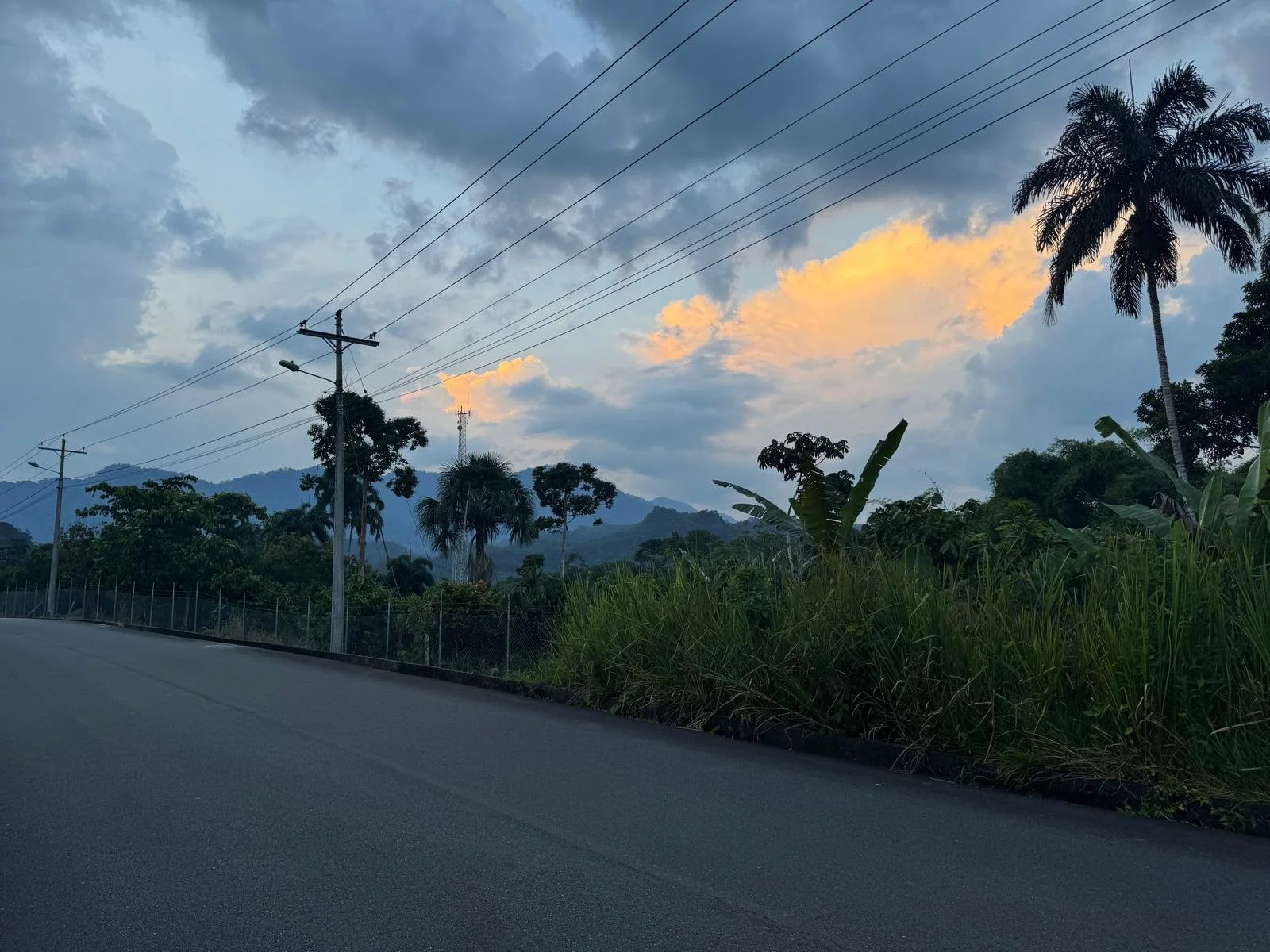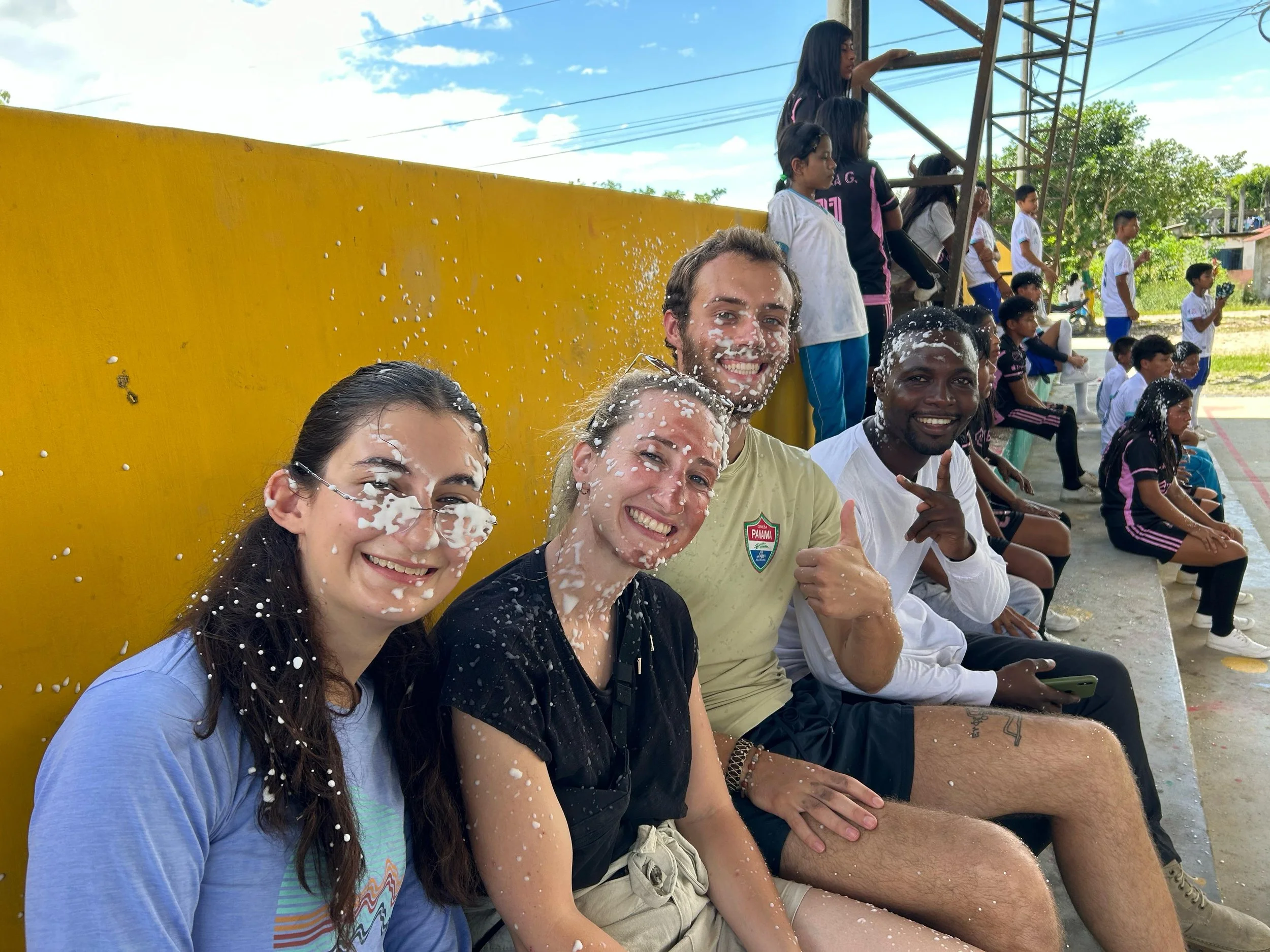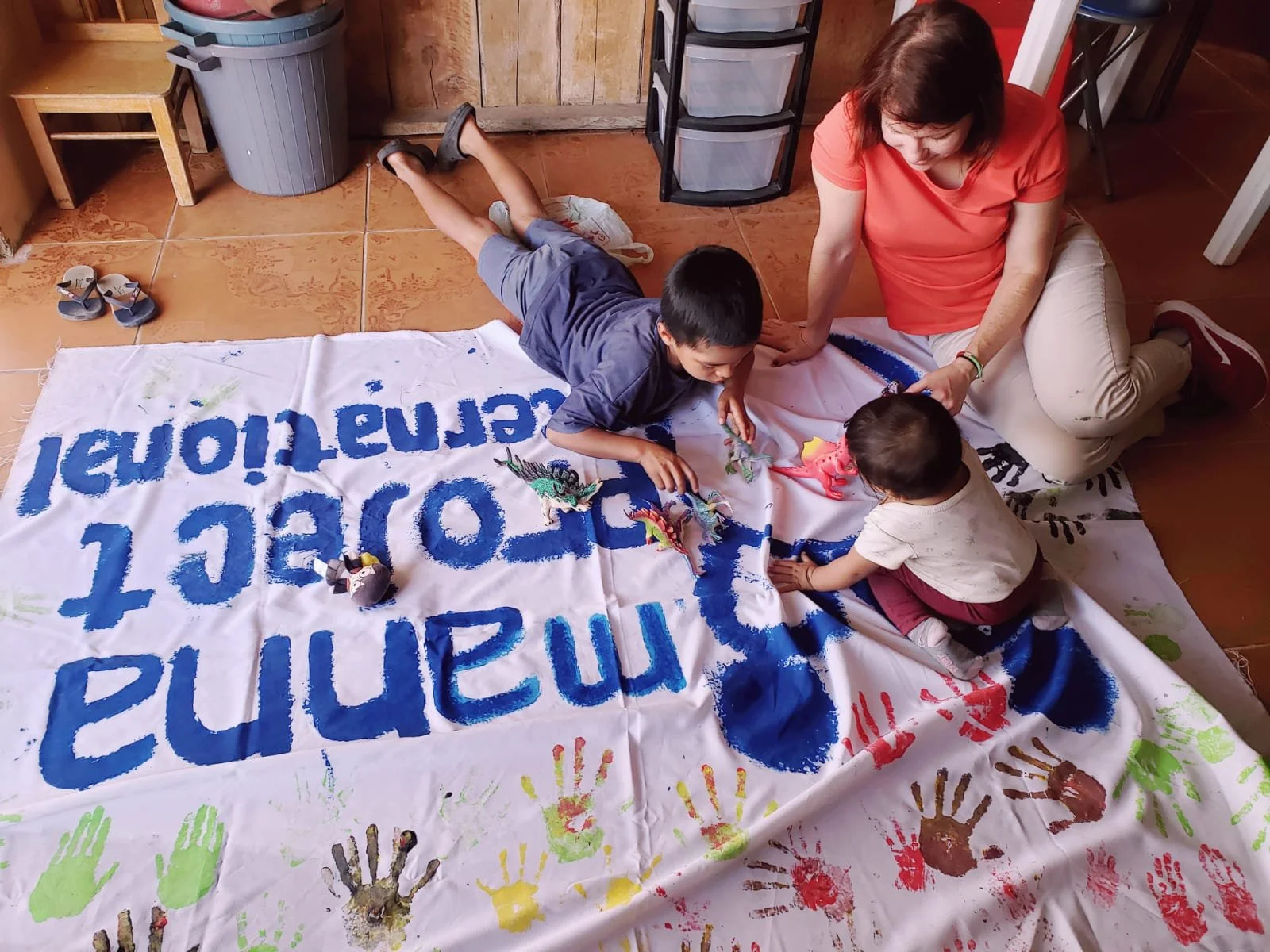Happy Thanksgiving from Ecuador!
We are very excited to be celebrating this Thanksgiving holiday with a group of 12 volunteers from Vanderbilt University! As many of you know, the new Environmental Health program has been working hard to collect bottles and this week our wonderful group of vols is beginning the construction on our plastic bottle greenhouse. They spent the beginning of the week washing, cutting, and separating the bottles and building the frame. Yesterday bottles were finally attached to the roof! Construction is coming along nicely and it has been really fun showing them around Quito and the Valley. Keep posted to get the inside scoop from one of volunteers as the wrap up their work and share their personal experiences from throughout the week!
Women's Charla
Small Business Development Indiegogo Campaign
The Top 10 Reasons to be a Program Director in Ecuador!
1. You can’t beat the “office”
3. Mountains, beaches and the Amazon
4. The KIDS!
The kids in the library are chaotic, crazy, filled with so much love and oh so adorable. Everyday they surprise us with something new, and you will often hear "Profe" being yelled from across the street before your legs are embraced in a hug. They love to share and will gladly offer you a piece of whatever snack they are munching on while they tell you all about their day.
5. Street food
Have you ever had ceviche? Ají (the BEST sauce around)? Meat on a stick for fifty cents? These tasty Ecuadorian classics can be found on almost any street corner, in any neighborhood. And for the vegetarians among us, fresh fruits and vegetables are found in abundance just about everywhere. It's hard to get bored with the variety of fruits, many of which you've never seen before, and the fresh squeezed juice that will become a staple in your diet.
6. Cultural Experiences
Whether it's going out salsa dancing and learning new moves from a perfect stranger, greeting everyone with a kiss on the cheek like family, or riding on a bus with zero personal space, Ecuador will challenge your cultural norms in both big and tiny ways. You will get used to seeing dogs EVERYWHERE and sharing everything, and having people open up to you like you are part of their family the first time they meet you. Honestly, there are too many cultural differences to count but, that's the beauty of moving to a new country.
7. Traveling
It is easy and affordable to travel all over Ecuador by simply jumping on a bus. Here in the Valley we are a day trip away from the edge of the jungle in Tena, massive waterfalls and natural hot springs in Baños, snow capped peaks and the capital city of Quito. On weekends it is easy to head to the beach for some laid back sun time or get on a canoe for a cruz down the Amazon. Not to mention the rest of South America is only a short flight away! Many PDs take trips to near by countries such as Colombia, Peru, and Brazil, during their longer holiday breaks.
8. Living in the country side, just outside of a major metropolitan city!
Living in the Chillos Valley, approximately 40 minutes outside of Quito, offers PDs in Ecuador a truly unique experience. The valley offers a true immersion experience; we are often the only foreigners around and our close proximity to the community allows us to develop very intimate relationships with our neighbors and people we work with. The city of Quito, however, is a cultural hub and affords us all the luxuries of living in a city without actually living there. Say you want to visit the former home of the famous Latin American artist, Guayasamin, or visit the Centro Histroic district for some live music and traditional food, or go watch an American football game if you are feeling a little homesick. All of this can be found in Quito, a 30 cent bus ride away.
9. Spanish
One of the main reasons many PDs come to Latin American is to learn, improve or perfect their Spanish skills. In Ecuador, especially in the mountains, Spanish is spoken without an accent, making it some of the easiest to learn in the world. People here really appreciate foreigners speaking to them in Spanish and are incredibly understanding and helpful when it comes to Spanish speakers of all levels. And with 13 months to practice, PDs have plenty of time to drastically improve their speaking ability.
10. Last but not least ... YOUR FELLOW PDS!
I think PDs from all sites and years will agree that through Manna you will meet people who you probably never would have met otherwise. Living with 10 people in a new country is an unique experience, one that forms fast friendships, many of which will last long outside of the Manna house. You will find yourself opening up to people in new ways, sharing sometimes difficult, sometimes fun, sometimes ridiculous and always rewarding experiences with your fellow PDs.









